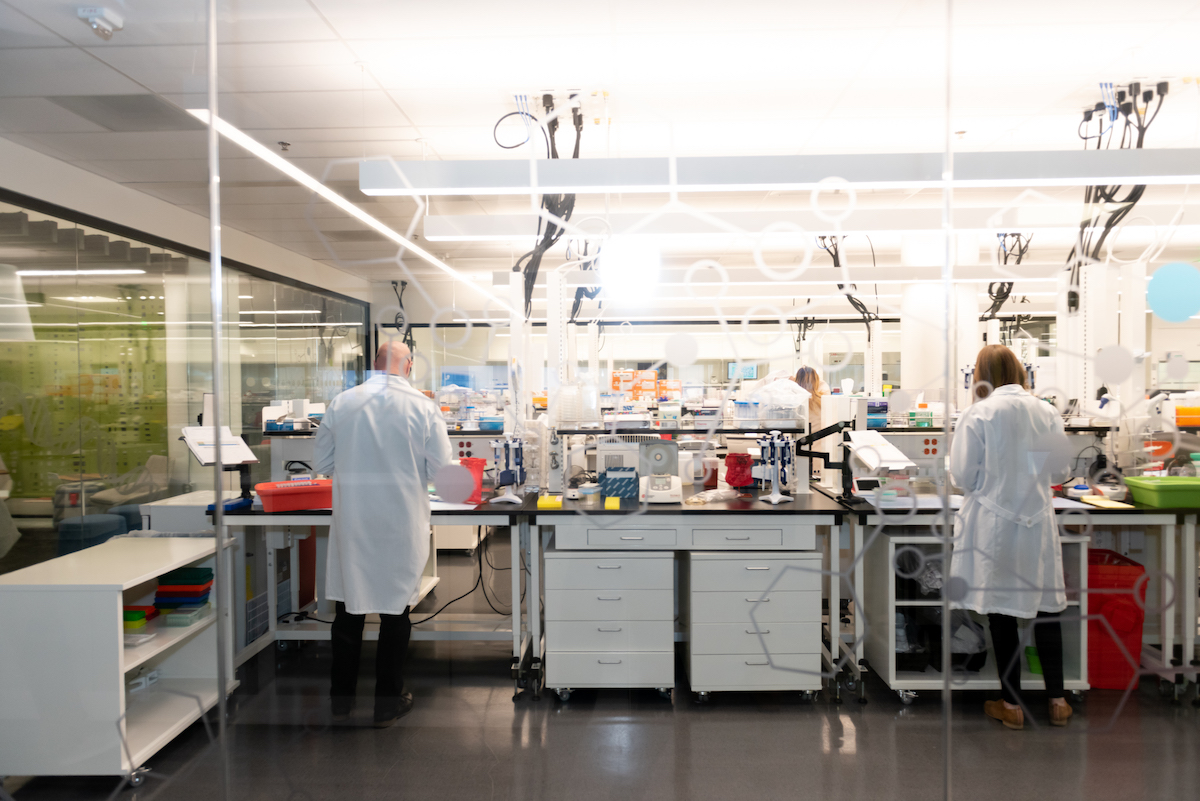Spark Therapeutics, one of the first and now largest cell and gene therapy companies in the Philadelphia region, announced Friday that it was investing $575 million into a 500,000-square-foot manufacturing facility.
The facility will be on Drexel University’s F Lot at the intersection of 30th and Chestnut streets, and is expected to break ground in late 2022. It will be a Philadelphia-based global center for Roche, the parent company of Spark. (That 2019 deal was Philly’s biggest-ever VC-backed exit.)
The move is a commitment to the growing cell and gene therapy industry in Philadelphia, Spark cofounder and CEO Jeff Marrazzo told Technical.ly.
The proximity to Drexel is also purposeful, Marrazzo said, as a partnership with the university will help both institutions shape the future workforce of life sciences. The facility, adjacent to Spark’s existing Philadelphia building, will allow for hands-on learning experiences and R&D.
The facility is expected to be completed in about four years, 2026. Although Spark is announcing its own contribution to the project, other details of the deal were not disclosed, except that the facility will have a 99-year ground lease.
“We are proud to partner with Spark Therapeutics in advancing life sciences research and innovation in University City,” said John Fry, president of Drexel, in a statement. “This partnership will generate unparalleled opportunities for our students and faculty to participate in groundbreaking research and to help create and sustain the workforce that will make West Philadelphia a leader in the life sciences revolution.”
The facility will add more space to the fast-growing demand for life sciences infrastructure in Philadelphia. There’s about a million square feet of space being developed, with many companies on the waitlist.
“If you had asked me in 2013 when we were starting Spark, as essentially the first cell and gene company in Philadelphia, I don’t think I would have predicted there’d be 40 now, all located here,” Marrazzo said. “The fact that Spark has been a catalyst for cell and gene therapies to be formed and the fact that there’s 40 of them is a great testament to what’s been happening here.”







